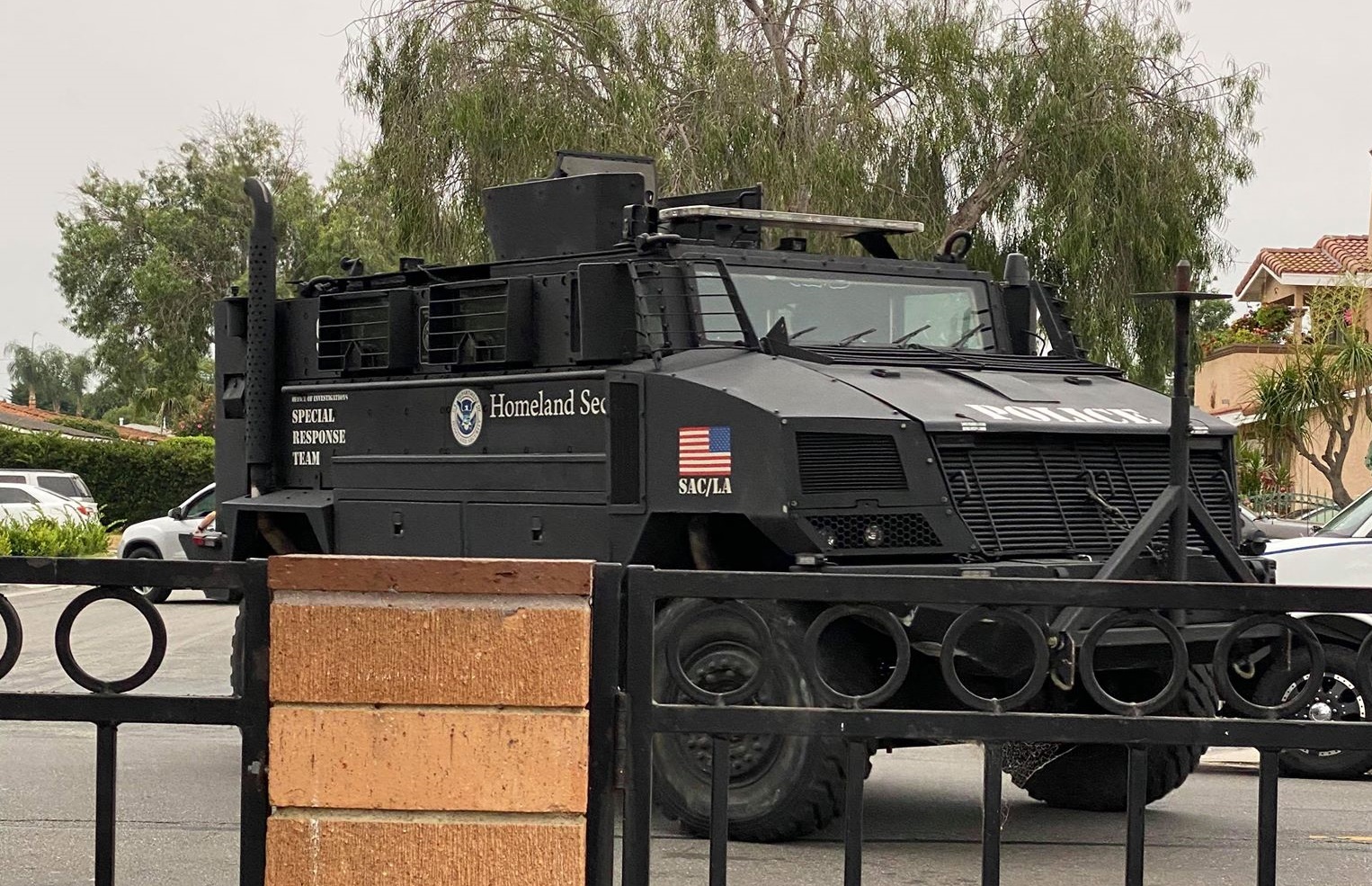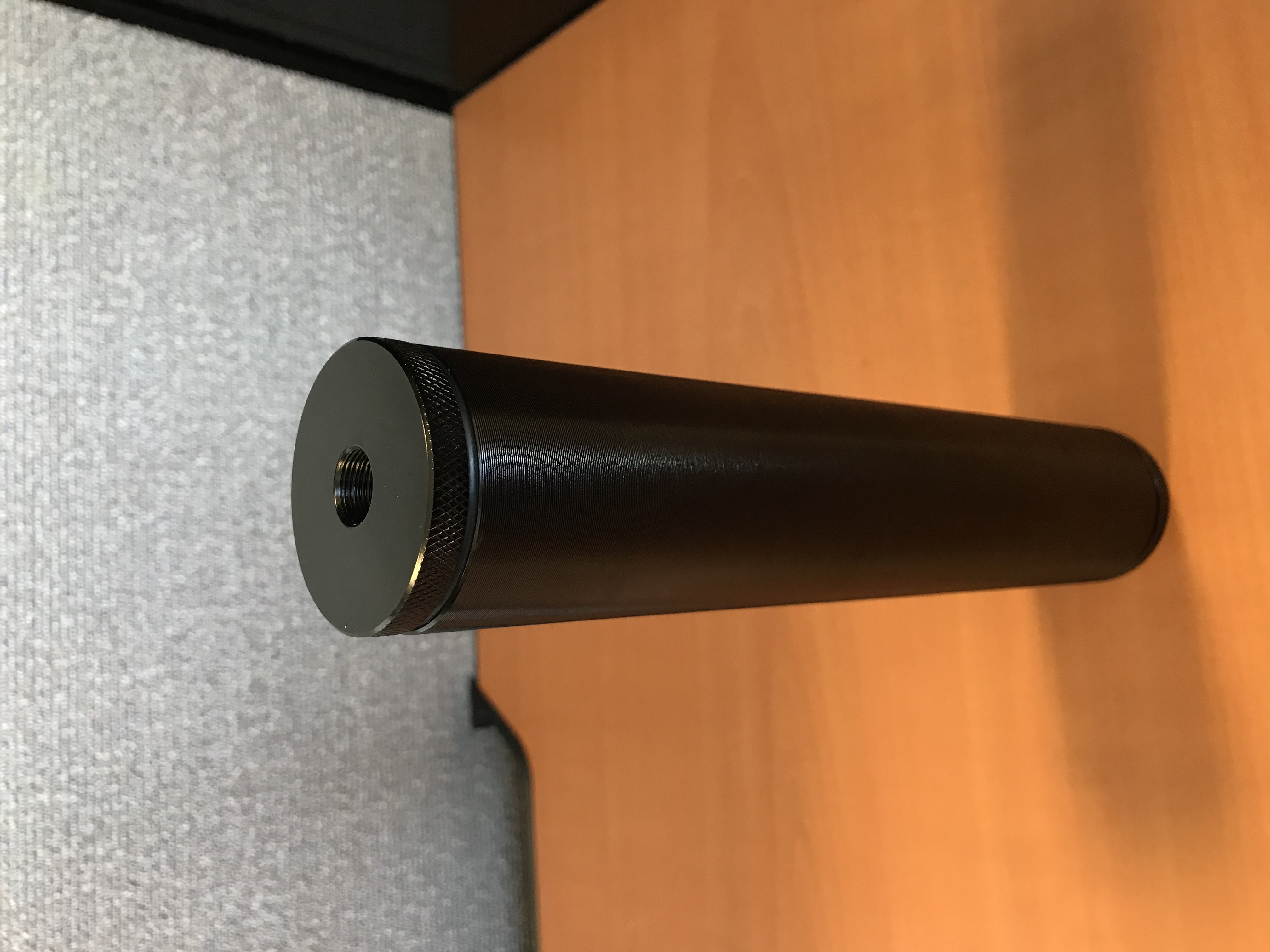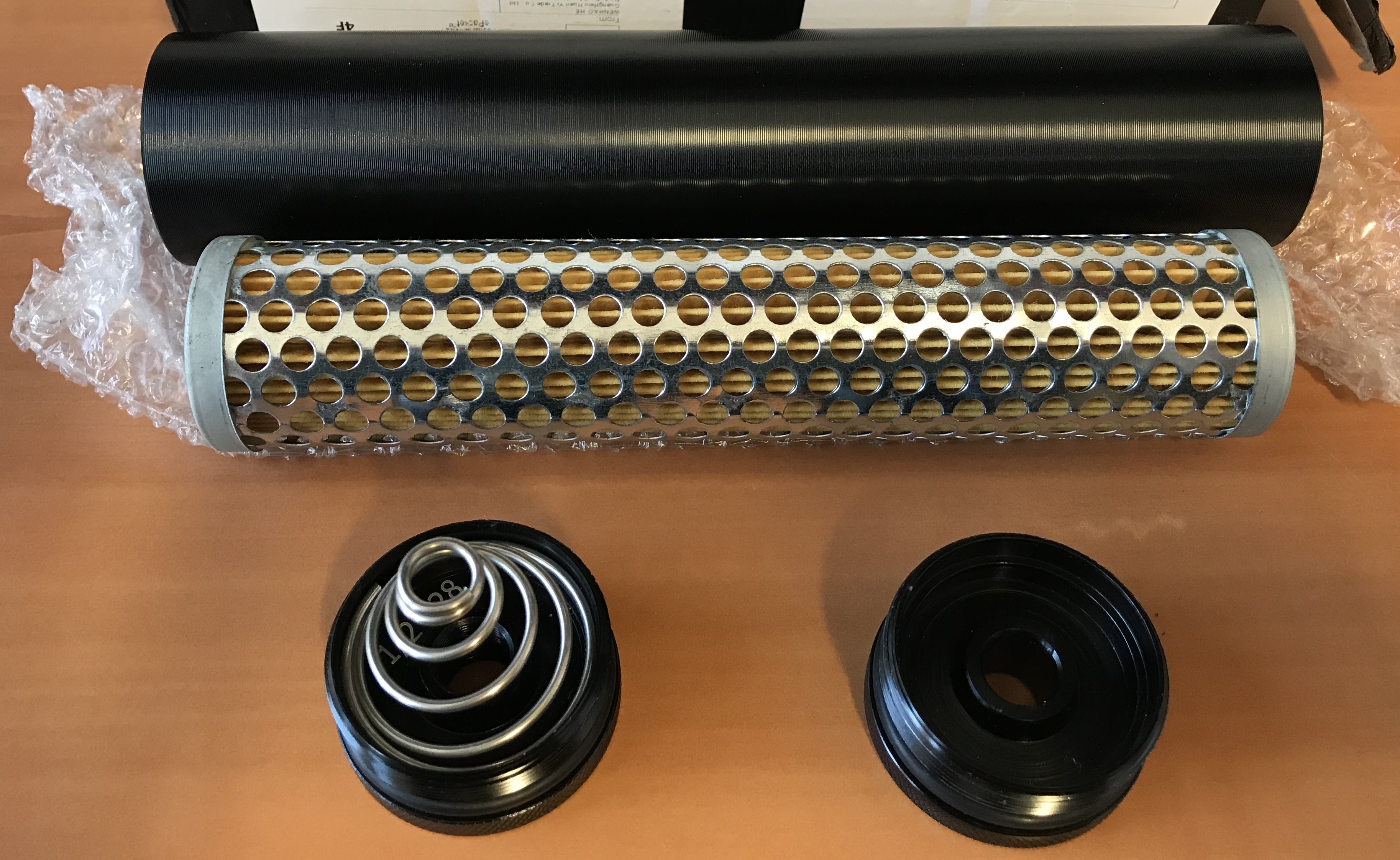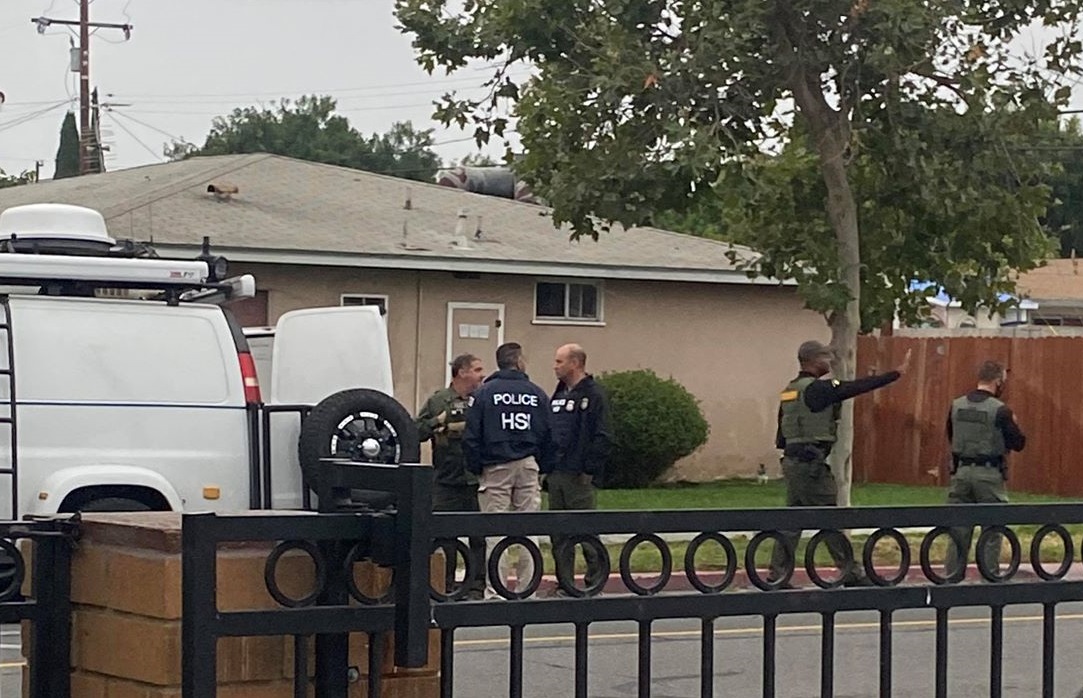Federal hearing delayed for man whose arrest last month led to commotion in a Santa Ana neighborhood
A hearing was delayed this week for a 52-year-old man whose arrest by federal agents last month for alleged smuggling and other crimes caused commotion in a Santa Ana neighborhood and led to claims of heavy-handed law enforcement tactics and concern from a local congressman.
Luis Memije, also known as Luis Memije-Guzman, 52, of Santa Ana, remains behind bars following his arrest by federal agents June 24 on suspicion of crimes including smuggling, the receipt of an unregistered silencer, and illegal reentry into the U.S. by a previously deported alien.
He had been scheduled for an arraignment Tuesday, July 14, but that hearing was postponed to Aug. 10 to “allow for a pre-indictment resolution in this matter,’ according to court documents. .
His arrest early on June 24 caused concern among some residents in the neighborhood as federal agents prepared to take the suspect into custody.
Santa Ana resident Marlene Garcia Alvarado recalled waking with a start as an armored vehicle rumbled down Center Drive and past her window at about 8:30 a.m. Her alarm grew when she stepped out onto her front patio and saw at least 20 men equipped with rifles and tactical vests surround a home just four doors down from her own.
“It looked like a war had started or something,” Alvarado said.
The armed personnel weren’t soldiers, but members of a branch of Immigration and Customs Enforcement (ICE) called Homeland Security Investigations (HSI).
Bewildered neighbors holding lunch bags watched agents order at least seven people inside of a home to come outside. Those residents were handcuffed and told to sit on a curb while officials looked through their house.
“After a long search in the home they took one person,” Alvarado said.
HSI agents opened an investigation after discovering an item labeled as a “filter,” in a package from China and addressed to Memije, according to a criminal complaint filed against the suspect June 18. The device was built such that it could easily be modified to become a functional silencer for a firearm.
Authorities learned that Memije had been deported after attempting to cross into the US from Mexico in 2005. He apparently reentered the country, then lied about his immigration status in order to purchase and register several guns with the state of California in his name.
After searching Memije’s home, authorities located the silencer that previously had been intercepted by federal agents, as well as a Ruger rifle, a Forjas Taurus 9mm handgun and ammunition.
“I am glad that someone like this isn’t on the block anymore,” Alvarado said. “But the way they did this, with armored vehicles, military-style gear and all this commotion, was completely unnecessary.”
Local law enforcement did not participate in the matter, Santa Ana Police Department officials said. It was conducted solely by HSI, which investigates a broad range of crimes including weapons smuggling, human trafficking, transnational gang activity, and international theft. HSI also works on immigration fraud, but does not engage in deportation related activities. Those are run by a branch of ICE called Enforcement and Removal Operations (ERO).
At least one armored vehicle was involved in the search due to the inherent possibility of danger when serving a firearms related warrant, ICE spokeswoman Lori Haley said.
“HSI is the investigative arm of the Department of Homeland Security and is a vital U.S. asset in combating criminal organizations illegally exploiting America’s travel, trade, financial and immigration systems,” Haley said in an email. “As with other law enforcement agencies whose mission is to protect public safety, specially trained SRT (Special Response Team) agents may be deployed in high-risk situations or under hazardous conditions.”
The search drew concern from community members and Democratic U.S. Rep. Lou Correa, whose congressional district includes Santa Ana.
“The vehicle DHS deployed into our community was designed to protect soldiers form IEDs in Iraq,” Correa said in an email. “Santa Ana isn’t Iraq, and that vehicle scarred a lot of people.”
There are numerous households that include undocumented relatives living in the community where HSI served a warrant for Memije’s arrest, Alvarado said. She believes the operation was a show of force that “sends a message” to those families.
“I was terrified that someone I know was going to be taken away.”
The incident brought up memories of ICE raids in previous years that resulted in the arrests of hundreds of undocumented immigrants, Alvarado said. Most of the people arrested by federal agents during a five-day sweep across Southern California in 2017 had criminal histories.
Next week ICE will begin the process of removing the millions of illegal aliens who have illicitly found their way into the United States. They will be removed as fast as they come in. Mexico, using their strong immigration laws, is doing a very good job of stopping people…….
— Donald J. Trump (@realDonaldTrump) June 18, 2019
Some of those cases involved a domestic violence conviction dating back to 1992, a firearms-related assault charge from 2003, and a suspect convicted of inflicting corporal injury to a spouse and other related crimes in 2017. A total of 15 out of the 188 people arrested during those sweeps had been convicted of sex crimes.
President Trump had hinted via Twitter in June of 2019 of another possible round of ICE raids. Although he projected on social media that “millions” of undocumented residents would be rounded up and deported, by July of that year civil rights watchdogs had not reported incidents of mass arrests.
However, the fear generated by even the suggestion of wide-scale deportations “absolutely did damage” to the undocumented community in Santa Ana, Alvarado said. During that time, she and her neighbors shouldered a near constant fear of becoming separated from loved ones. People were afraid to go to work, and many community members still refuse to participate in surveys like the 2020 census, out of fear that they or their relatives might be tracked down by ICE.
“Whether intended or not, things like this absolutely send a message to the community,” Correa said. “It’s why our community needs law enforcement to take them into account when planning these sorts of operations. While we welcome the assistance of federal law enforcement to keep violent criminals off our streets, they should not traumatize families in the process.”













